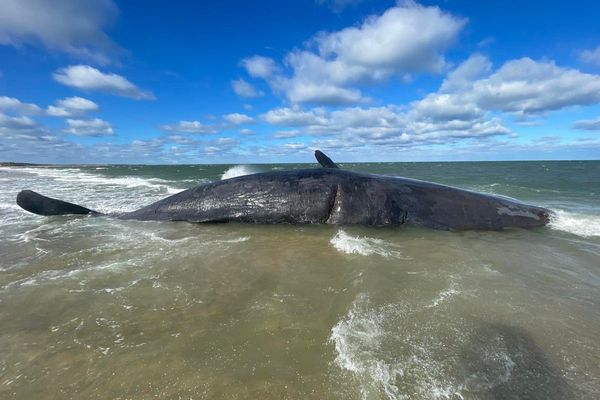
“Saving animals pretty much saved my life,” says Iain Jenkins, a raccoon rescuer whose semi-detached home in Hartlepool appears as ordinary as they come but is anything but. This is a house that Jenkins shares with raccoons, a parrot and a friendly skunk and previously a whole host of exotic animals including a crocodile in the conservatory.
Jenkins’ far-from-ordinary story is inextricably tied up with his mental health struggles, which he is keen to talk about.
“About 20 years ago because of sheer exhaustion and stress I had a nervous breakdown,” he says. “I basically ended up just sitting, staring at walls. I had paralysis at one stage. If there was something to be counted, I counted it over and over again. I just felt locked in, I couldn’t see where I wanted to be.
“It was frightening because one part of you knows what the problem is but you just can’t see a solution. Then I realised, do you know what, animals have always a big part of my life, so I headed in that direction.”
Jenkins gave up a successful career in education and social care to devote himself to animal welfare, setting up the non-profit Raccoon Rescue UK. He has never looked back and is the go-to person if a raccoon or similar exotic animal is on the loose in the UK. At present he is helping to lead the hunt for a fugitive city farm raccoon, Meeko, in Sunderland.
Nearly 40 miles south, Jenkins shares his home with four raccoons, a grey African parrot and a skunk whose favourite resting place is Jenkins’ bed.

The raccoons are in enclosures outside and include two brothers, Scout and Nicky, who needed a home after another rescue centre closed down and who do not, Jenkins says, want or crave any human connection.
Then there is Rubbish, a male and, at 18, a very old raccoon, recovered during a police house raid in Northern Ireland. The friendliest of all is Katana, who was an ill-advised choice of pet that her owners knew needed a better life than they could provide.

Jenkins says he adapts to what the animals want, not the other way round. “A lot of the animals we get have behavioural issues because of the way they have been treated. If they want to hide away and not be disturbed, that’s absolutely fine.”
Jenkins has had dozens of raccoons and coatis at his house, as well as other exotic animals in need of help. “Up until a couple of years ago we had a crocodile in a 12ft swimming pool in the conservatory. It was a £400-a-month electricity bill and probably not one of the best decisions I’ve made. But she was lovely.”
Before being a teacher, Jenkins worked as a zookeeper and as a nature consultant for TV documentaries such as Survival.
He has a particular fondness for raccoons because of their extraordinary intelligence. “They are just very intelligent animals, as intelligent as a two-year-old child. Each one has got a completely different individual personality and like toddlers their mood can change in an instant. They love cashew nuts, they hate cashew nuts.”
The skunk is called Stinky Pete, which seems unfair given he isn’t and has never sprayed in the house. Jenkins’ tip for preventing that: “You don’t want to startle them.”
Ruby the once stressed and unhappy parrot is also a rescue. “Of all the animals, he is the messiest and most destructive,” Jenkins says.

Jenkins helps pay for his animal rescue work with money he makes from circus sideshows and training people in magic and illusion. It means his house is an odd mix of animals and everything that goes with that, and props such as those for sawing people in half.
He believes mental health should be discussed as much as physical health. “To me there is no difference. Nobody is embarrassed about talking about a broken leg or having a heart attack. It’s unfortunate that there is still a stigma over mental health.”
Rescuing raccoons is rare in the UK, although he says it happens more than people might expect.
Meeko, the current fugitive, was one of three raccoons believed to have been set loose by a trespasser at Sunderland Training and Education Farm on 18 December. Two female raccoons, Rocket and Pinch, were tempted back by hotdogs left in a crate at the farm but Meeko remains at large.
It is taking time because of their intelligence, Jenkins says. “They are really adaptable and versatile. They can climb. They can hang upside down if they want to. They can burrow, they can push themselves into thickets and are very good at hiding. When they move they are really quiet so you just wouldn’t know they were there. Meeko is probably having the time of his life.”







